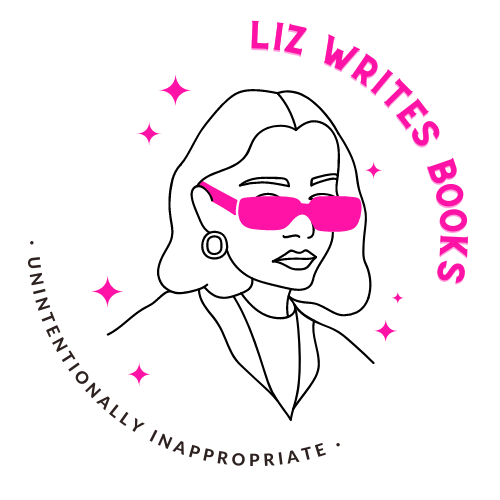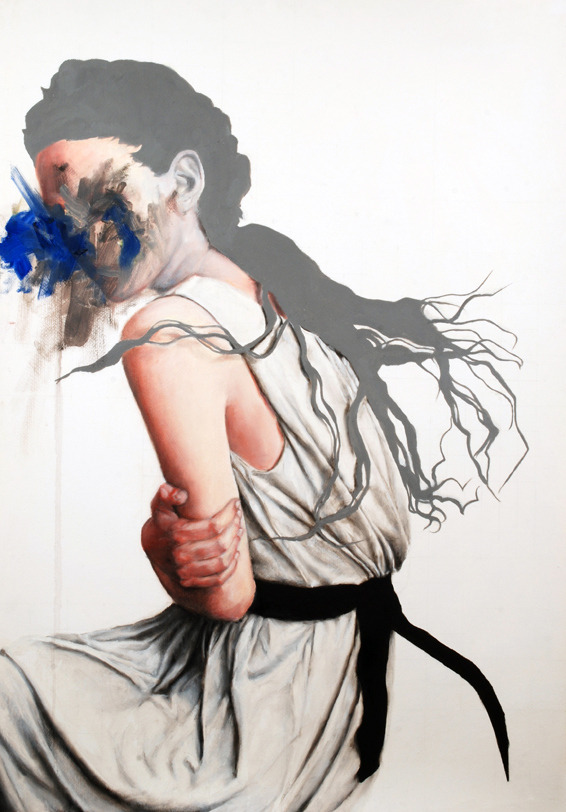Everyone is a genius. But if you judge a fish on its ability to climb a tree, it will live its whole life believing that it is stupid.
Month: September 2013
-
— Albert Einstein
-
Q&A: What’s the most you’ve ever written in a day?
Anonymous asked:
What’s the most you’ve ever written in a day?
I’m going to tell you a little story about The Perfect Day.
It was in December 2005. I was home sick with the flu, or at least that’s what I’d told my boss. I don’t actually remember if I was sick or not, only that I’d called in sick, and given my work ethic in 2005, it could go either way.
(Oh, who am I kidding? It was more like 60/40, in favor of lazy over sick.)
Anyway, I was home and in pajamas and I managed to crank out something like 45 pages.
It was kind of awesome.
But of course when you have a day like that, you kind of start using it as a stick by which to measure all other days. And so, almost ten years later, I find myself thinking back to that day and wonder what I did right then and what I’m doing wrong now.
The answer, of course, is that I did nothing “right’ then and I’m doing nothing “wrong” now. There are so many factors involved in that freakshow of a day, factors that will probably never align again. But still my subconscious won’t let it go.
So there’s your answer. Most words in a day: 45 pages.
But it’s also worth noting that those 45 pages? Complete and utterly useless. They got deleted on a first pass edit. I’m sure there was something I learned from those 45 pages that eventually found its way into the book. But the pages themselves? Not so perfect after all.
-
Q&A: Do you find your’e drawn to the same colors/visuals/themes when you’re writing?
Anonymous asked:
Do you find your’e drawn to the same colors/visuals/themes when you’re writing? I feel like I overuse the same things in different books. “Oh look a dragon, how original”. Do you think this is a bad thing?
There are a lot of things that keep showing up in my work. I reckon this is because I, um, wrote them, and I am me, and there are things that I resonate with, and I use them.
And then there’s the part where every book I write is about a secret princess. So you know. There’s that.
But I think every writer has one core story that they keep telling in everything they do. Mine happens to be secret princess. Yours has something to do with dragons.
I remember Jennifer Weiner once talked about her work and how all of her stories are basically variations on the same theme: “My parents split up and I’m sad about it.”
If you’re at all familiar with her work, you can see clearly where that comes in. And while her books are all quite similar to one another, it isn’t like she’s writing the same book all the time. They’re their own book, too. They’re just part of the same family. Variations on the same theme.
Even Joss Whedon has recurring themes in his work: strong female characters; mind-control assassins; robot girlfriends; musical episodes. You can see a direct line from the Buffy musical episode to Lorne (the demon karaoke bar host) in Angel to Dr. Horrible’s Sing-Along Blog. It’s not a bad thing.
(OK, so the Buffy musical was kind of cheesy. But that’s beside the point.)
What I’m saying is, only you know why the dragons keep showing up. Do they mean something to you? Is your subconscious using them in your stories to try and sort something out? Is it a cheat, an easy go-to, like a reptilian version of Kraft Easy Mac you keep throwing in to keep from having to think too hard? Or are you just overanalyzing your alleged over-use of dragons?
Think on that for a while and see where it leads you.
-
Q&A: Sometimes when I sit down to read a book, I get distracted by how much better/worse the book is from my WIP. Is this normal? Does this ever happen to you?
Anonymous asked:
Q&A: Sometimes when I sit down to read a book, I get distracted by how much better/worse the book is from my WIP. Is this normal? Does this ever happen to you?
Only all the time!
That feeling you’re feeling–get a good feel for it. Because its name is Insecurity, and the next time you sense it hanging around, you’ll want to give it the holiest of all holy smack downs.
Think of Insecurity as little mind roaches. (I know. That IS a disgusting metaphor!) It scurries around, hiding in the darkest crevices of your psyche, carrying all sorts of disease and pestilence.
And the more you feed it, the more it breeds, dude. Like, it’s not even funny.
So now you’ve got millions of these little mind-roaches scurrying around inside your mind, telling you to compare yourself to other people.
Sometimes you’ll come out ahead. You’ll look at your work and compare it to theirs, and your work will come out ahead. This is called Pride.
Sometimes you’ll come out on the losing side. You’ll look at your work and compare it to theirs, and your work will look like a two-year-old’s macaroni art compared to their Picasso. This is called Jealousy.
Insecurity’s only goal is to measure itself against other people. It wants to know how it measures up–that you measure up–against everything else. And when that happens, you’re so consumed by these little measuring bugs that you never let yourself do or be anything else.
Have you ever tried to be happy for someone while at the same time mulling over what her success means for your success? It can’t be done. You can either be insecure or happy, but you can’t be both.
So the next time you sit down to read a book, read the book. And don’t compare it to anything. Set yourself aside, and give someone else your full attention for a few minutes.
This is SO much harder to do than to type, by the way. You’ll probably need some practice at it. But eventually you’ll get back to that place where you can place your work and someone else’s work side by side and let both be OK, imperfections and all.
-
Q&A: Are there any book classics that you do not like?
Anonymous asked:
Are there any book classics that you do not like or have not read? (We’are reading Moby Dick in high school and I don’t like it!)
Oh, there were SO MANY.
Because as much as I loved reading, I did not always love reading what my teachers or our school system wanted me to read.
(The infinite loathing I feel for COLD SASSY TREE is well-documented in the journals of fourteen-year-old me.)
But there were also quite a few gems in there. Like THE GREAT GATSBY, which was beautiful and sad and taught me that all the best books have gobs of sex and booze in them.
And the poetry of Emily Dickinson and Lord Byron, which also has a lot of sex and booze in it.
(Byron, anyway. Dickinson, not so much. But what she lacked in sex and booze she made up for in death and headaches. So that’s something.)
Even Shakespeare, whose work I couldn’t fully appreciate until I was well into my twenties, was a worthy experience, because it taught me how important it is to not just write a story, but to perform it with words.
So OK, maybe MOBY DICK blows. Personally, I agree with you there. But you can learn something from it regardless.
Like, for instance, the importance of trying new things, even if they turn out to be not for you.
-
-
What makes an artist an artist…
What makes an artist an artist is kind of feeling like you can relate to them but at the same time, they’re like, otherworldly. My experience [in ballet] is that it isn’t about seeing a pretty line or an insanely arched foot. I think most of my favorite dancers that I truly respect as artists don’t even have all of that. But they’ve taken what they have and they’ve made it into this incredible thing. It’s not about their body parts. That’s so easy to come by. You can find a pretty body anywhere and put them in a position, but what makes an artist an artist and a dancer a true dancer is what they make of all of that onstage and what they bring to the audience.
–Misty Copeland, Soloist with American Ballet Theatre

